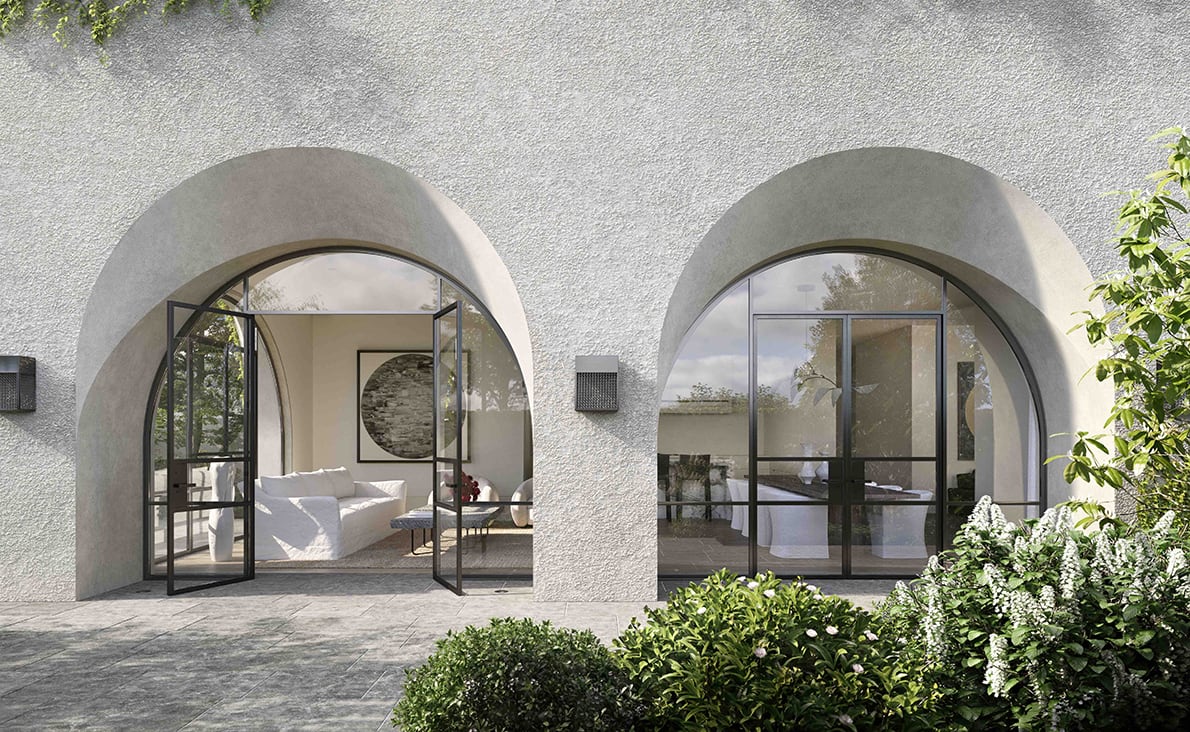Orchard Piper's Luke McKie discusses the shift to the owner-occupier market
For almost ten years, Melbourne-based Orchard Piper has been developing boutique projects targeted at a very niche owner-occupier market. Working exclusively with Jolson Architecture, their projects are generally comprised of around 10 residences, all with a gross realisation of around $40 million in tightly held inner-ring suburbs.
With the now sustained trend in the property market toward the owner occupier and drop off of international investors, Orchard Piper Director Luke McKie notes that, “if you are not willing to adapt to the demands of the owner occupier, you won’t be able to service this swing in the market."
Orchard Piper's most recent project - Huntingtower Road - is a boutique two-level project of just 10 apartment surrounded by gardens on a 2,000 square metre site on Huntingtower Road, tailored specifically for people considering a move from large homes in Melbourne’s inner eastern suburbs.
Located between High Street and Malvern Road, 35 Huntingtower Road sees Orchard Piper once again engage Melbourne Architect Stephen Jolson, alongside acclaimed horticulturist Myles Baldwin, to the design team to maximise and enhance the project's garden setting.
We entrusted this incredibly rare 2000-square metre site to our highly experienced and talented design team to deliver a project with integrity and substance. They created Huntingtower Road – a property far beyond anything Armadale has seen before in this section of the market.
- Luke McKie, Director, Orchard Piper
Urban.com.au asked McKie for his thoughts on the shift in the market and how Orchard Piper might be best positioned to respond greater demand for service and customisation
Urban.com.au : Orchard Piper have always had a predisposition towards the higher end of the owner-occupier market and a development model which generally results in a speedy town planning process. What was the key driver behind these decisions?
Luke McKie : The two points you’ve raised are critically linked. When Owner Occupiers are your primary buyer, there’s little compassion for a drawn out planning process causing delays to a project.
Our clients typically want to sell their family home, plan their move and get on with their lives. One of our strengths is our ability to identify and acquire premium addresses that can be developed within the Council's objectives resulting in a much quicker planning outcome.
UM : Are you surprised that there are few other developers taking this approach? Or is it still a very niche market, particularly when considering the locations of previous Orchard Piper developments?
LM : It’s a very time consuming and inefficient process, but highly rewarding for us. The ability to engage with our clients, neighbours and Council regularly allows us to continually evolve and improve our product.
We have a very good understanding of our market and community expectations.
There is an ever growing number of developers in our market space, particularly following the slow down of the overseas / investor buyer. I’ll be curious to see how developers new to the owner-occupier space adjust to the demands of this sector, it’s certainly not straight-forward.
UM : What is an ideal development size for Orchard Piper in terms of number of dwellings and also scale?
LM : Historically between 5 and15 properties per project, but we really have no ideal. So long as our buildings and properties within have a strong sense of identity and clients can maintain the balance of privacy and ownership over the building, we are happy to proceed.
UM : Any observations re: the last 6 months and impact of new stamp duty regulations?
LM : Not directly on us, but in speaking with peers, the effect seems to be dramatic. Most developers I speak with, who were in the “stamp duty sensitive space” say that sales have slowed to a trickle or have stopped completely.
I’m sure there’s a lot of pain out there, but it can take time to filter through in an otherwise strong economy. It will start from financiers looking for loan paybacks, when projects get to that point.
UM : What are your expectations for the year ahead?
LM : A continued focus toward the underlying demand of the local buyer and the ongoing exposure of those with poor fundamentals. If your outlook and business model remain macro and disciplined these bumps will create opportunities in the year ahead.
UM : What are some of the fundamentals of Orchard Piper projects and responding to the demands of owner-occupiers? What does Orchard Piper do differently?
LM : The never ending loop of offering a product to market, listening to feedback and integrating that into your next project; this ensures we’re always in touch with our market. We always work as if we’re developing the property for someone in our own family.
Our design intuition, attention to detail, uncompromising standards and ability to source un-repeatable sites sets us apart. We also maintain a deep respect for our clients and our creative team.
We have a wonderful sense of pride and ownership in our project team which we feel is embodied in our projects and ultimately passed through to our clients in their new home. We are also open to change, which in the property development world, immediately sets us apart.
